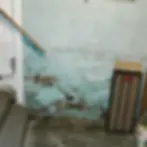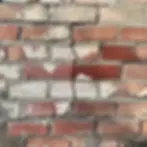Can Structural Damage to a House Be Fixed?
- John Screen
- Nov 26, 2024
- 3 min read
Structural damage to a house can be a homeowner's worst nightmare, but the good news is that most structural issues can be repaired with the right expertise and resources. This comprehensive guide will walk you through the most common structural problems and their solutions, helping you understand when and how structural damage can be fixed.
What Are the Signs of Structural Damage?
Before diving into repairs, it's crucial to identify the warning signs of structural issues in your home. According to the International Association of Certified Home Inspectors, catching these signs early can save homeowners thousands in repair costs.

Cracks in Walls: Are Cracks in Walls Always Serious?
Not all cracks indicate severe structural problems. Hairline cracks in walls and ceilings are common in most homes due to settling and seasonal changes. However, cracks wider than 1/4 inch, horizontal cracks, or cracks that appear suddenly may signal serious structural issues requiring immediate attention.
Sticky Doors and Windows: Why Do Doors and Windows Stick?
Doors and windows that suddenly become difficult to open or close often indicate foundation problems or structural shifting. This occurs when the house's frame becomes misaligned, causing door frames and window openings to warp.
Can Foundation Problems Be Repaired?
Foundation issues are among the most serious structural problems, but they're often fixable. The American Society of Civil Engineers provides extensive resources on foundation repair techniques and best practices.

How Much Does Foundation Repair Cost?
The cost of foundation repair ranges depending on the severity and type of damage. While generally not a cheap procedure, addressing foundation problems early can prevent more costly repairs later.
What Are Common Foundation Repair Methods?
Modern foundation repair techniques include:
Steel piers installation
Concrete piering
Slab jacking
Foundation wall reinforcement
Hydraulic lifting systems
Is Structural Damage from Water Repairable?
Water damage can severely compromise a house's structural integrity, but most water-related structural issues can be addressed. The Federal Emergency Management Agency offers comprehensive guidelines for addressing water-related structural damage.

How Do You Fix Water-Damaged Support Beams?
Water-damaged support beams can be repaired through:
Sister joisting (adding new beams alongside damaged ones)
Partial beam replacement
Complete beam replacement
Reinforcement with steel plates
Treatment with preservatives to prevent future damage
Are Structural Wall Repairs Possible?
Damaged structural walls can typically be repaired, though the process requires careful planning and execution.
How Do You Fix Bowed Walls?
Bowed walls can be straightened using:
Carbon fiber straps
Steel beam reinforcement
Wall anchors
Channel beams
Rebuilding severely damaged sections
Can Load-Bearing Walls Be Modified?
Yes, load-bearing walls can be modified or even removed, but proper support systems must be installed first. This typically involves:
Installing temporary support walls
Adding steel beams or laminated veneer lumber (LVL) beams
Redistributing the load properly
Ensuring adequate foundation support
When Is Structural Damage Beyond Repair?
While most structural issues can be fixed, some situations may make repairs impractical or unsafe.

What Makes a House Condemned?
A house may be deemed irreparable when:
Repair costs exceed the property's value
Multiple major systems have failed simultaneously
The foundation has suffered catastrophic failure
Structural integrity is comprehensively compromised
Environmental factors make the location uninhabitable
Should You Buy a House with Structural Problems?
Purchasing a house with structural issues can be risky but potentially rewarding if:
The problems are well-documented
Repair costs are accurately estimated
You have access to qualified contractors
The purchase price reflects repair needs
The location and other factors make the investment worthwhile
How to Proceed with Structural Repairs
Successfully fixing structural damage requires a methodical approach.
What Does A Structural Repair Process Look Like?
The repair process typically involves:
Structural engineer assessment
Professional inspection report
Multiple contractor quotes
Building permit acquisition
Insurance company consultation
Make sure the company you work with offers great warranties.

How Long Do Structural Repairs Take?
Repair timelines vary significantly based on:
Damage extent
Required permits
Contractor availability
Weather conditions
Project complexity
Most structural repairs take between one week and three months to complete.
Preventing Future Structural Damage
After repairs, preventing future problems becomes crucial for maintaining your home's integrity.
What Maintenance Prevents Structural Issues?
Regular maintenance should include:
Annual foundation inspections
Proper drainage maintenance
Prompt repair of water leaks
Regular gutter cleaning
Monitoring for new cracks or movement

Need Foundation Repair in MA? Call JMS Masonry!
JMS Masonry & Restoration is a leading foundation repair company, serving the Greater Boston area, as well as the North Shore, South Shore, and Central areas of the state.
